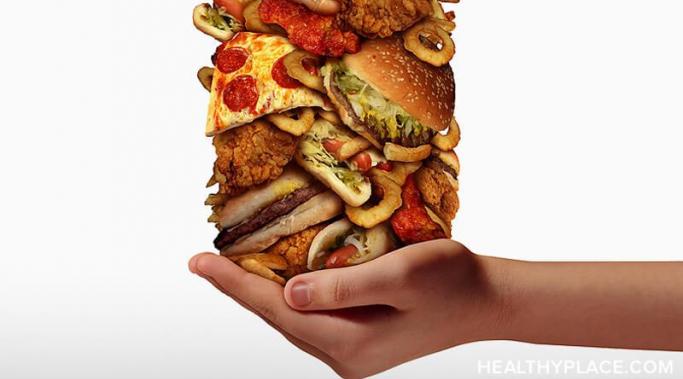For 20 years, every bingeing relapse caused me so much guilt, I returned to binge eating. Until recently, I considered every bingeing relapse a disaster and myself as a failure that would never get better. Binge eating is one of the most difficult aspects of my life to discuss because I feel guilty that there are hungry people and I overeat. I also feel ashamed that I allow myself to lose control like this, so when I have a bingeing relapse, all of these emotions intensify. It was not until I stopped thinking in terms of success and failure that I began making progress, and I’d like to share ways I have retrained my brain to navigate my recovery and learn from a bingeing relapse.
Binge Eating Disorder Treatment
My eating disorder treatment experience was a crucial part on my road to abstaining from eating disorder behaviors. Over the years, I have been through many types of treatment programs and have had many different experiences with them all. I hope through reading this you are able to gain insight into what the treatment experience for eating disorders is like.
I often missed the essential steps to binge eating disorder recovery because, when I binged, I felt overwhelmed with shame, guilt, and sadness. It did not occur to me there may be more below the surface. I attributed overeating to lack of self-control and used it as a way to berate myself for days on end. But when I started journaling, I began to see in black and white how I spoke to myself, my mood instability, and how much pain I was in without even acknowledging it. Because of journaling, I uncovered three essential steps to binge eating disorder recovery.
I’m Daina Frame, and I’m excited to join HealthyPlace and Binge Eating Recovery to write about my recovery with eating disorders. I am 34 years old, and I have struggled with eating disorders for almost 20 years. I only began talking about my disorders a year ago. Until then, I hid everything from everyone I know. I had always feared being honest about binge eating, bulimia, and anorexia. I was ashamed and scared to talk about the truth. While I have been able to stop purging and restricting, I still am working through binge eating disorder. In addition to eating disorders, I am in the process of recovery for bipolar disorder, depression, anxiety, and posttraumatic stress disorder (PTSD).
I always knew that treatment for binge eating disorder wouldn't happen overnight. What I didn't know, however, was how much time binge eating disorder treatment would take. Finding freedom from binge eating disorder is usually not a linear path and takes time along with patience to get through.
Treating the causes of binge eating disorder (BED) is so much more than treating merely the symptoms. The underlying purpose of the eating disorder, or what caused the maladaptive eating patterns, are what we need to explore and deal with. Doing this will help lead to a stable, long-lasting recovery that conquers the causes of binge eating disorder instead of simply removing the symptoms of it.
The benefits of dance movement therapy (DMT) during my eating disorder recovery can't be ignored. I have been a dancer all my life and, honestly, think dance is what saved this life of mine (Alternative Approaches to Mental Health Treatment). Shortly into my eating disorder recovery journey, I began working with a dance movement therapist. Having this experience made me realize how important movement, in particular, dance movement therapy, is for eating disorder recovery.
There are many components to binge eating disorder recovery. In spite of this, often times, individuals with eating disorders are told to "just eat" or to "just stop eating," depending on which eating disorder they are suffering from (How To Talk To Someone About Their Eating Disorder). Recovery is much more complex than only fixing our behaviors with food. Eating disorders are both a mental and physical disease which require many different treatment components for binge eating disorder recovery.
A lot of people, whether they have binge eating disorder or not, seem to think that a binge eating disorder recovery is made up of one event. This mythical event marks the end of your recovery and from then you never encounter a problem with binge eating disorder ever again. Unfortunately, it's a little more complicated than that. Binge eating disorder recovery is not a one-time event.
At times, you may want to seek support from someone else with binge eating disorder (BED). A BED support system can be vital to your recovery and talking to someone who has had similar experiences can be incredibly helpful. Support systems can also include online support from people who have binge eating disorder. The support from someone else with binge eating disorder can fit your needs exactly.









